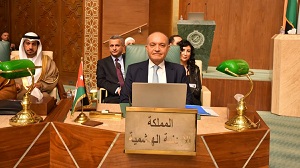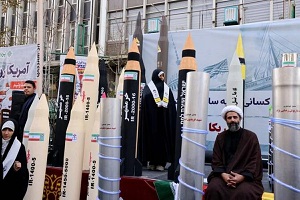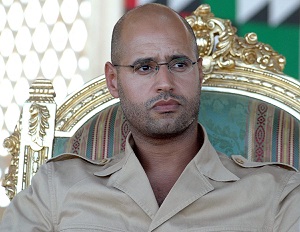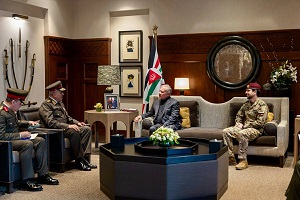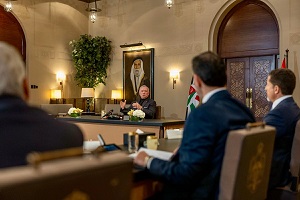Commentary on Dr Usamah Fawzi's papers - By Nabil Gharfeh, Jordan Vista
Mr. Nabil Gharfeh sent us this commentary which was sent to Arab Times.
To the editors of Arab Times: While I had much reservation about the offensive language used by Dr. Usamah Fawzi against certain Jordanian figures in the papers he is publishing in Arab Times, at first, I liked the information he provided about the social and cultural life in Al-Zarqa in the 1950s and 1960s, having been born there and know the places, shops, schools, bookshops, tailors, and the headmaster of the train station Ibrahim Freyj, Abu Zuhair, Zuhair was my friend. Those stories bring to mind memorable days of my childhood and boyhood.
However, as I read Dr. Usamah’s today’s paper, Number 10, I came to realize that the goal of these papers is not really to portray social and cultural life in Al-Zarqa and Amman, as he claimed at the beginning.
Dr. Usamah uses utterly false and abominable terms against the late Ahmad Ala-al-Din, whom he alleges he knows. I am absolutely sure Dr. Usamah does not know Ahmad Ala-al-Din. Yes, he must have seen him and only knows him by face as they lived in Al-Zarqa Camp. I am unspeakably appalled at the attempt to denigrate a gentleman of the stature of Ahmad Ala-al-Din, whom I have personally known since school days. I am honored to say that he was my close friend, and I am proud beyond words of his friendship.
Ahmad Ala-al-Din never slaughtered helpless people in the hospital, as Dr. Usamah alleges. These are false rumors. Simply speaking, Ahmad Ala-al-Din was above that. He was too gallant, magnanimous and compassionate to stoop to that level. He fought those whom he believed spread utter anarchy in Jordan. I lived in Jordan at the time, and most people in Jordan know that life in Jordan in 1969 and 1970 was hell. Every day and every hour, in daytime and at night, various fedayeen groups would open fire with Doshkas and Kalashnikovs at one another in civilian areas in Amman and Al-Zarqa and elsewhere. The irresponsible and opportunist Palestinian factions’ leaders did nothing to rein in their henchmen and stop the violence. And the anarchy dragged on and on for two years.
Every fair-minded man who was in Jordan at the time knows full well that life could not continue with daily armed clashes, crimes, thefts, robberies and hijacking of civilian airplanes. Dr. Usamah’s eldest brother, Munir, an Arabic teacher at a private school in Al-Zarqa, where I also taught English, himself complained to the teachers that two fedayeen stole his car at gunpoint in broad daylight. This is just one example to remind Dr. Fawzi of countless such acts and of how horrible life was in Jordan in those years.
King Husayn was forced to act to save the country and restore life to normal. The late Ahmad Ala-al-Din fought those who spread chaos and anarchy in the country. Yes, there were decent Palestinian fighters who believed in their cause and who committed no crime, but many were ragtag militias. Ahmad Ala-al-din does not need me or anyone else to defend him. His valor, integrity, and chivalry are known to countless people in Jordan and beyond. All his brothers are very well-mannered, very respectable people.
I will give just one example of who Ahmad Ala-al-Din was just for the sake of the truth: On my last visit to Jordan four years ago, I came across his younger brother, Ali, in an Al-Zarqa street. He insisted that I visit him on Friday for dinner. A friend drove me to Ali’s house in a tiny village called Al-Riyad between Al-Zarqa and Sweleh. Upon arrival at Ali’s house, I was surprised to see General Ahmad Ala-al-din waiting for me in the courtyard of his brother’s house, along with his younger brother, the late Murad.
Despite his ill health and despite his Parkinson disease, Ahmad Ala-Al-Din came from his house in an Amman suburb to Al-Riyad, a long distance for a man with Parkinson, to see an old friend. He came to see a friend who is nothing, just a teacher of English. This shows the true mettle of Ahmad Ala-al-Din, a humble, noble and faithful friend whose high position and status did not turn his head. He remained friendly, warm, humble, and compassionate, and he was there when anyone needed his help. Countless people testify to this fact.
Allow me to say a few words about Dr. Khalid al-Karaki, whom Dr. Usamah assails. I knew Dr. Al-Karaki as we both studied at the University of Jordan during the same years in the late 1960s, he majoring in Arabic literature and I in English literature. And Dr. al-Karaki and I served together as teachers for three years at the oldest government secondary school in Amman, Raghadan, in Jabal al-Husayn. Thousands of the students we taught know this. Al-Karaki was well-mannered and was respected by all his colleagues and students. Classmate female friends of mine, who were close friends of his first wife, the writer Insaf al-Qal’aji, had a very high opinion of him.
I deeply regret my first letter to Arab Times expressing my admiration for what was supposed to be tales about social and cultural life in Al-Zarqa and Amman. I now realize that the title of the papers about social and cultural life was only a cover to spew venom and denigrate people. The use of such abominable and odious terms against people does not serve the truth. It only belittles the information in these papers and cast doubt about their credibility. This vile, lowly language only detracts from any merit in these papers. I now tend to believe that the motives for writing these papers are deep-rooted rancor, and settling of scores.
I am 72 years old (I joined the University of Jordan four years after Al-Tawjihi), and I am a permanent citizen of the U.S. I have a terminal cancer and currently under treatment for cancer. As I have a few months or few years to live, I thought it was my duty to refute what Dr. Usamah wrote about the late Ahmad Ala-al-Din's legacy, and to defend a true and decent human being to show what he truly was.
I am sorry I write in English as I do not know how to type in Arabic. So it is truly regrettable that those who do not know English will not read this letter.
Nabil Gharfeh
